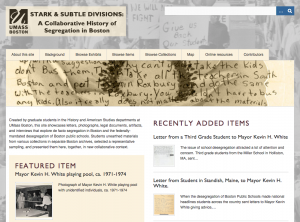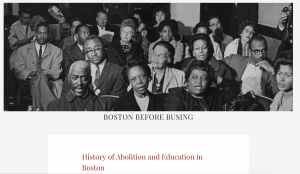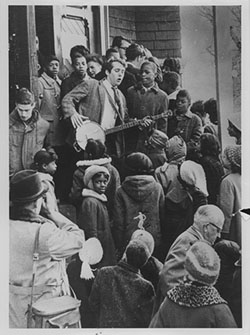BPS Desegregation Project: Pedagogical Exhibits
The following is a series written by archivists, academics, activists, and educators making available primary source material, providing pedagogical support, and furthering the understanding of Boston Public School’s Desegregation history.
BPS Desegregation Project would like to highlight two wonderful exhibits built by students from Desegregation related collections.

Stark & Subtle Divisions: A Collaborative History of Segregation in Boston
http://bosdesca.omeka.net/
Created by graduate students in the History and American Studies departments at UMass Boston, this site showcases letters, photographs, legal documents, artifacts, and interviews that explore de facto segregation in Boston and the federally-mandated desegregation of Boston Public Schools. Students unearthed materials from various collections in separate Boston archives, selected a representative sampling, and presented them here, together, in new collaborative context.

Boston Before Busing
http://dsgsites.neu.edu/desegregation/
Activism for educational civil rights in Boston began well before 1974, when the “Garrity” decision mandated busing to fix de facto segregation in Boston schools. This exhibit introduces key people, groups, and events in Boston from 1964–1974, describing the community effort that led to the desegregation decision that still affect s Boston today.
This not a complete portrait—many narratives, including Latino and Chinese voices, are lacking. All exhibit materials are from the Northeastern Archives and Special Collections, supplemented by research at the Suffolk, UMass Boston, and Harvard Schlesinger Library Archives.
Common historical narrative has painted the busing crisis in Boston in the mid-1970s as an inevitable but spontaneous change in Northern race relations. After exploring this exhibit, think about whether that’s a true portrait of events.
This exhibit was created for Martha Pearson’s public history fieldwork for HIST 4901/4902 at Northeastern University in collaboration with adviser William Fowler.
— Giordana Mecagni is Head of Special Collections and University Archivist at Northeastern University
